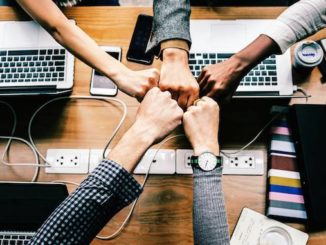By Mark Groves, Founder, Do You Mined
The last year and a half have been an absolute disaster for mental health. Humans were never meant to live in isolation, but social distancing rules and work-from-home policies have made us more isolated than ever before. And as Ontario gradually comes out of a series of lockdowns meant to protect the public from the ravages of the COVID-19 pandemic, we are facing a new challenge: people are anxious, depressed, and disconnected. And we don’t have a roadmap for getting out of this kind of large-scale malaise. It’s time to look beyond traditional approaches to mental health care.

Everyone talks about the new normal, but let’s face it: the old normal wasn’t all that great. Prior to March 2020 we could all leave our homes freely, and yet as a society we were facing unprecedented levels of anxiety caused by the pressures of the modern world. And then one day we woke up and we were barely allowed to leave our own homes. We couldn’t visit our families. We couldn’t see our friends. And we went from the “regular” isolation of the modern age to a pandemic era of protecting physical health with almost no regard for mental health. Now that we are coming out of the pandemic, we need to seriously reevaluate how to get our minds as healthy as our bodies.
The number one thing that we need to do is get out of the fight-or-flight mentality that most of us have had for the last 18 months. The survival instinct is wonderful, but it has a cost. The hormones that keep us vigilant, including cortisol and adrenaline, may have kept us alive, but they also create extreme levels of anxiety and depression. And it’s not just adults that are affected: there are millions of kids across Canada whose lives have been fundamentally disrupted by losing most of the basic social interactions that define childhood – Canadians as young as three years old are dealing with extreme mental health consequences because they have not been able to see their friends, go to school, or be out in the world. I would call it a disaster waiting to happen, but it is already happening.
So what do we do now? How can nearly 7,000,000 people in the Greater Toronto Area take steps to improve their mental health as we gradually return to our regularly scheduled lives? The first step is to focus on re-forming personal connections. Since March 2020 we have all been living in bubbles, and no amount of Zoom meetings and Facetime calls can make up for a lack of human interaction. That doesn’t mean running out and going to concerts and restaurants (which we all want to do, of course!), but rather making time to connect with good friends one-on-one or in smaller groups. People often underestimate the importance of these kinds of interactions, but isolation has proven to be the single largest driver of poor mental health.
Another important step that all of us can take is self-motivation. Simply put, there aren’t enough mental health professionals in practice today to handle the massive influx of people who need help right now. As a result, it’s up to all of us to take the initiative to improve our own mental states without depending on therapists and other experts. Going online to find motivational speakers, energy workers, therapists, and other experts to follow could be a really useful approach.
As a final step, we need to think about what comes next. Yes, we all have those friends who spent the entire pandemic posting pictures of their personal COVID challenges or accomplishments, but for every person that has used the last 18 months to get into shape, learn a language, or plant the perfect garden, there are many more of us who have barely been able to hold it together. We need to acknowledge that that struggling was the norm, not the exception. It’s easy to look at other people’s perfect sourdough loaves and feel frustrated, but no one is posting pictures on Facebook of themselves sitting in a dark corner of the living room drinking a beer and eating an entire bag of Flamin’ Hot Cheetos. There’s a lot more of that going on than there is of interval training.
It took us a long time to get into this mess, and it’s going to take a long time for us to recover from it. There is no single magic bullet that is going to make the last year and a half go away. We will all be carrying our sense of loss and deprivation for years and decades to come. In 50 years, the history books are going to look at our present reality the same way that they look at the Great Depression: repercussions of the pandemic are going to be felt throughout the rest of our lifetimes, and probably into our children’s lifetimes as well. But as a first step of reclaiming our lives, we need to make our mental health a priority.




